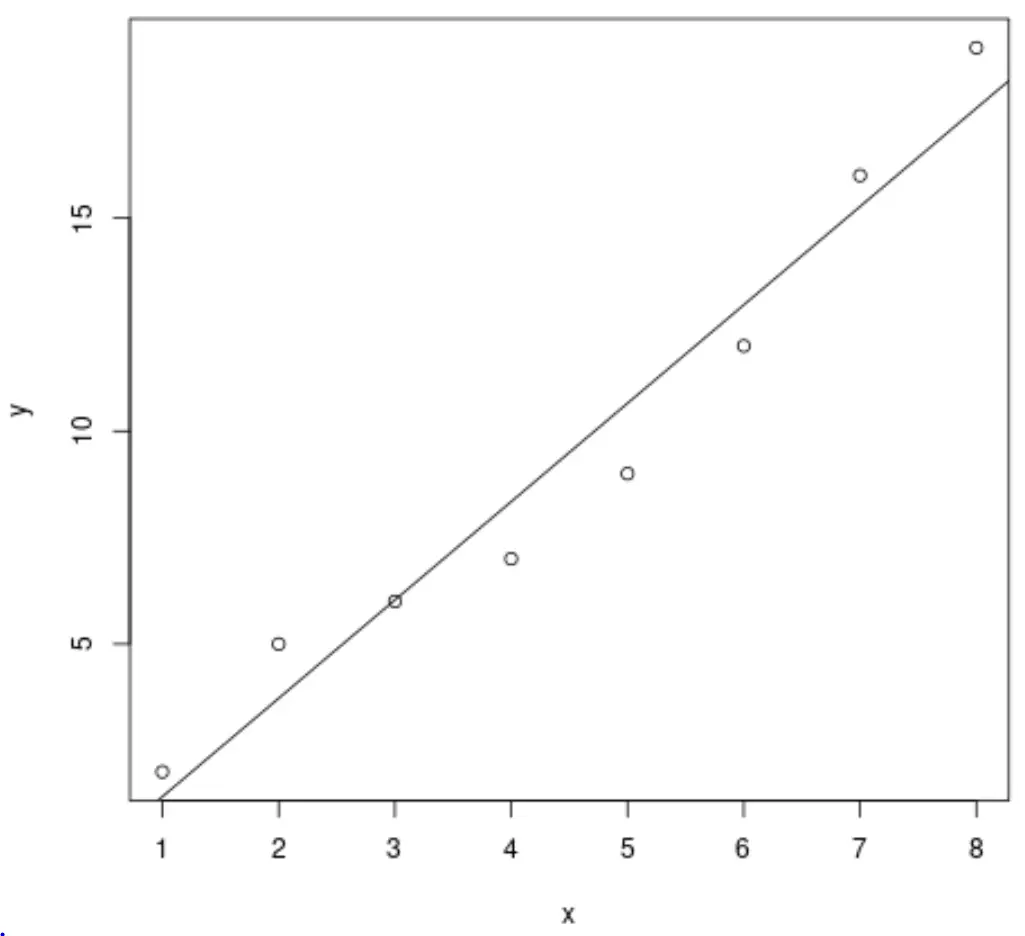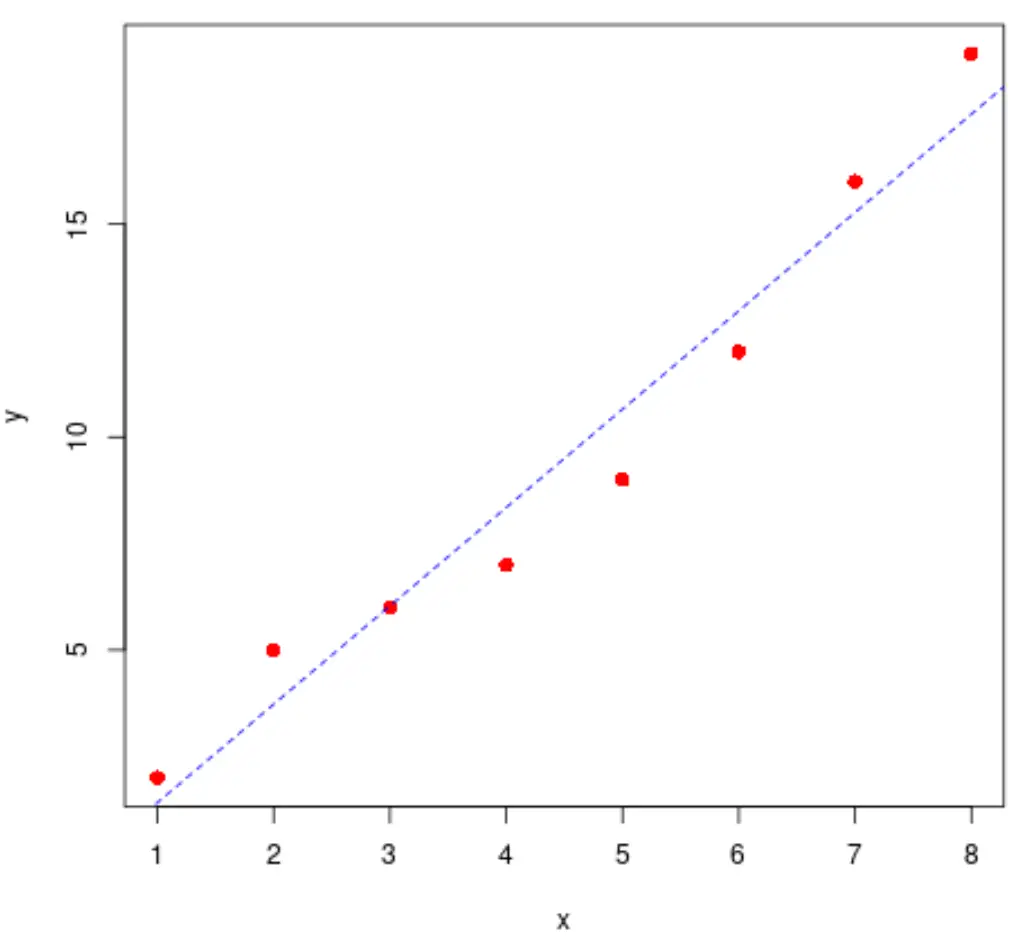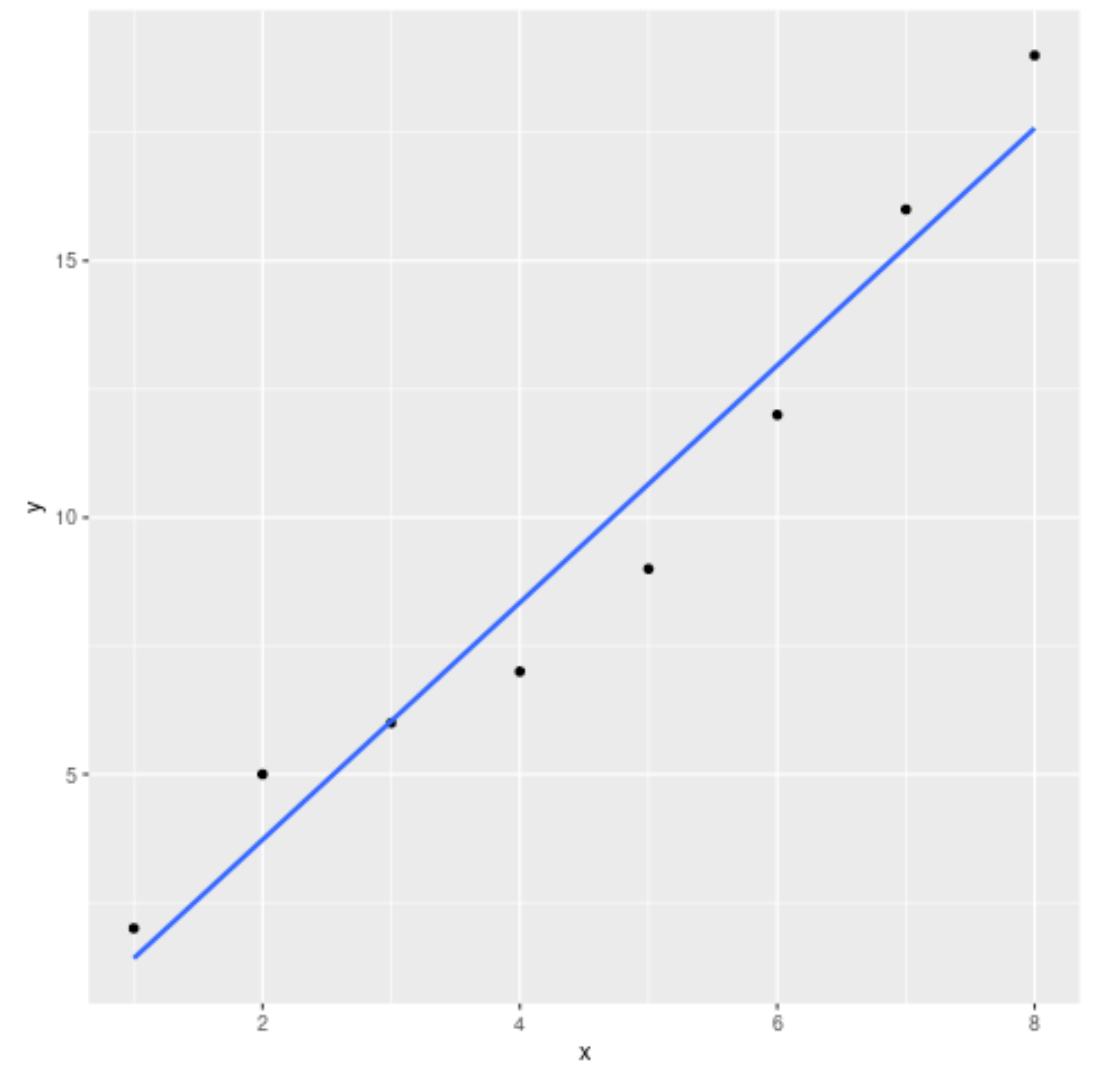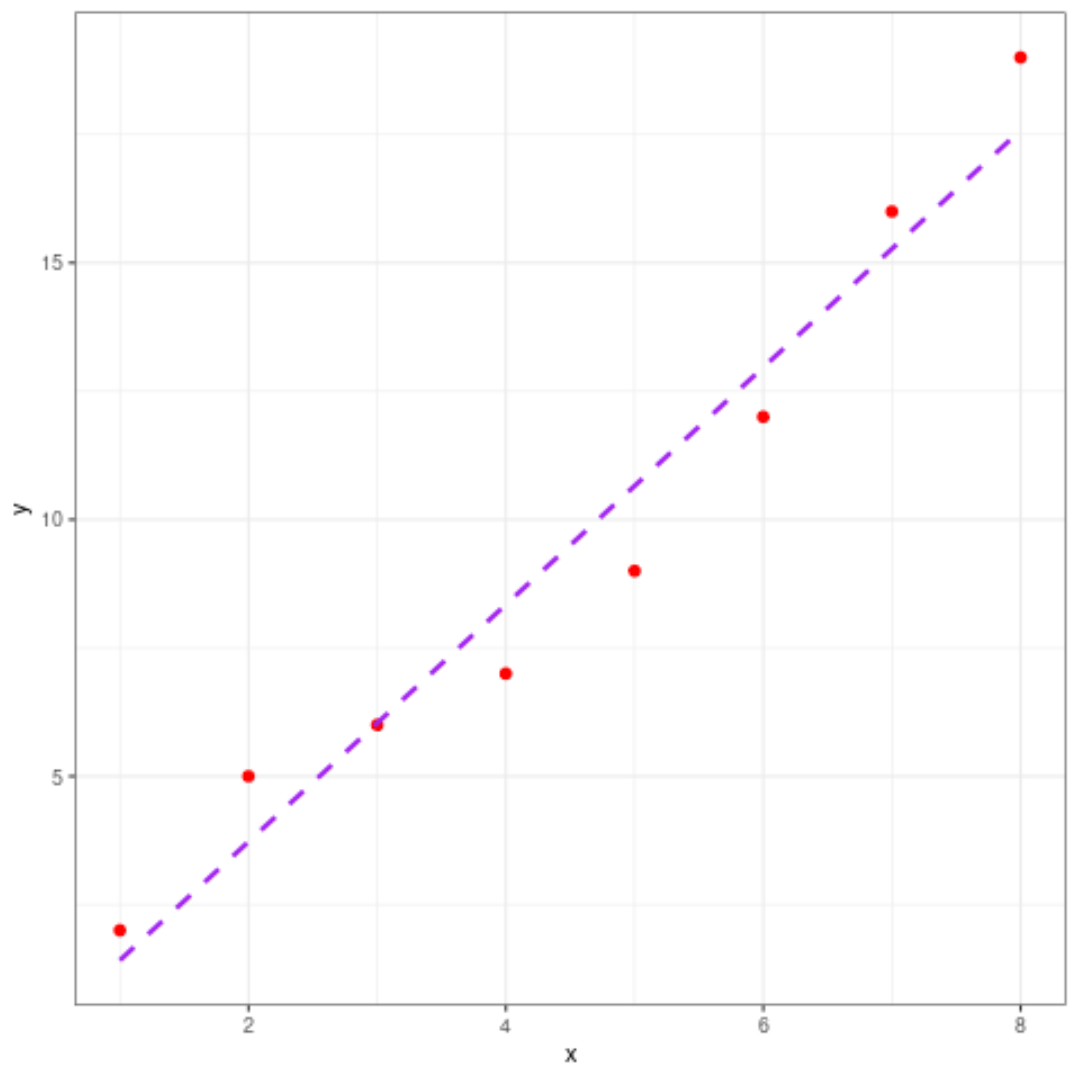วิธีการวาดเส้นที่พอดีที่สุดใน r (พร้อมตัวอย่าง)
คุณสามารถใช้วิธีใดๆ ต่อไปนี้เพื่อวาดเส้นที่เหมาะสมที่สุดใน R:
วิธีที่ 1: วาดเส้นที่พอดีที่สุดในฐาน R
#create scatter plot of x vs. y plot(x, y) #add line of best fit to scatter plot abline(lm(y ~ x))
วิธีที่ 2: พล็อตบรรทัดที่เหมาะสมที่สุดใน ggplot2
library (ggplot2) #create scatter plot with line of best fit ggplot(df, aes (x=x, y=y)) + geom_point() + geom_smooth(method=lm, se= FALSE )
ตัวอย่างต่อไปนี้แสดงวิธีการใช้แต่ละวิธีในทางปฏิบัติ
ตัวอย่างที่ 1: การวาดเส้นที่เหมาะสมที่สุดในฐาน R
รหัสต่อไปนี้แสดงวิธีการวาดเส้นที่เหมาะสมที่สุดสำหรับโมเดลการถดถอยเชิงเส้นอย่างง่ายโดยใช้พื้นฐาน R:
#define data x <- c(1, 2, 3, 4, 5, 6, 7, 8) y <- c(2, 5, 6, 7, 9, 12, 16, 19) #create scatter plot of x vs. y plot(x, y) #add line of best fit to scatter plot abline(lm(y ~ x))

อย่าลังเลที่จะปรับเปลี่ยนรูปแบบของจุดและเส้น:
#define data x <- c(1, 2, 3, 4, 5, 6, 7, 8) y <- c(2, 5, 6, 7, 9, 12, 16, 19) #create scatter plot of x vs. y plot(x, y, pch= 16 , col=' red ', cex= 1.2 ) #add line of best fit to scatter plot abline(lm(y ~ x), col=' blue ', lty=' dashed ')

นอกจากนี้เรายังสามารถใช้โค้ดต่อไปนี้เพื่อคำนวณบรรทัดที่เหมาะสมที่สุดได้อย่างรวดเร็ว:
#find regression model coefficients
summary(lm(y ~ x))$coefficients
Estimate Std. Error t value Pr(>|t|)
(Intercept) -0.8928571 1.0047365 -0.888648 4.084029e-01
x 2.3095238 0.1989675 11.607544 2.461303e-05
เส้นที่พอดีที่สุดกลายเป็น: y = -0.89 + 2.31x
ตัวอย่างที่ 2: พล็อตบรรทัดที่เหมาะสมที่สุดใน ggplot2
โค้ดต่อไปนี้แสดงวิธีการพล็อตเส้นที่เหมาะสมที่สุดสำหรับโมเดลการถดถอยเชิงเส้นอย่างง่ายโดยใช้แพ็คเกจการแสดงข้อมูล ggplot2 :
library (ggplot2)
#define data
df <- data. frame (x=c(1, 2, 3, 4, 5, 6, 7, 8),
y=c(2, 5, 6, 7, 9, 12, 16, 19))
#create scatter plot with line of best fit
ggplot(df, aes (x=x, y=y)) +
geom_point() +
geom_smooth(method=lm, se= FALSE )

อย่าลังเลที่จะเปลี่ยนความสวยงามของเนื้อเรื่องเช่นกัน:
library (ggplot2)
#define data
df <- data. frame (x=c(1, 2, 3, 4, 5, 6, 7, 8),
y=c(2, 5, 6, 7, 9, 12, 16, 19))
#create scatter plot with line of best fit
ggplot(df, aes (x=x, y=y)) +
geom_point(col=' red ', size= 2 ) +
geom_smooth(method=lm, se= FALSE , col=' purple ', linetype=' dashed ') +
theme_bw()

แหล่งข้อมูลเพิ่มเติม
บทช่วยสอนต่อไปนี้จะอธิบายวิธีดำเนินการทั่วไปอื่นๆ ใน R:
วิธีดำเนินการถดถอยเชิงเส้นอย่างง่ายใน R
วิธีดำเนินการถดถอยเชิงเส้นพหุคูณใน R
วิธีการตีความเอาต์พุตการถดถอยใน R